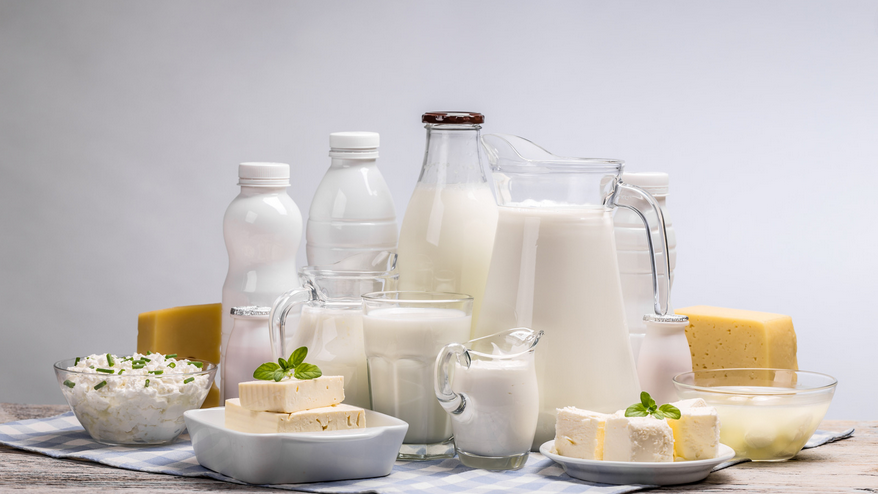Senior Digestive Health: How to Improve Gut Health Naturally

As we age, our bodies undergo various changes, and one area that can be impacted is our gut health. Gut health refers to the balance and function of the digestive system, including the microbiome of bacteria and other microorganisms that live in our gut. Maintaining good gut health is essential for seniors because it can impact overall health and well-being, including digestion, immunity, and mental health.
Fortunately, there are natural ways to improve gut health that seniors can incorporate into their daily lives. By making dietary and lifestyle changes, as well as taking natural supplements, seniors can promote a healthy gut microbiome and improve their overall health.
We will explore natural ways to improve gut health in seniors. We’ll discuss the importance of good gut health for seniors, common gut health issues, and how diet and lifestyle affect gut health. We will also provide tips for maintaining good gut health and recommendations for long-term wellness. Let’s dive in.
Understanding Gut Health
A healthy gut is essential for good health. It helps with nutrient digestion, immune regulation, hormone production, and neurotransmitter production. The gut microbiome, a collection of trillions of bacteria, viruses, and other microorganisms that live in our digestive tract, is a critical component of gut health.
As we age, our gut microbiome can change, and the diversity and abundance of beneficial bacteria can decline. This makes us more susceptible to gut health issues. Some common gut health issues that seniors may face include constipation, diarrhea, bloating, and abdominal pain, Inflammatory bowel disease (IBD).
Diet and lifestyle can significantly impact gut health. For example, a diet that’s high in fiber and fermented foods can promote a healthy gut microbiome. However, a diet that’s high in sugar and processed foods can negatively impact gut health. Chronic stress, lack of exercise, and certain medications can also impact gut health.
To improve gut health, it is essential to understand the gut microbiome and how it can be impacted by diet and lifestyle. Making positive changes in these areas can help seniors maintain good gut health and overall wellness.
Natural Ways to Improve Gut Health
Improving gut health is important for seniors. You can do this naturally by incorporating certain habits into your daily life. These methods involve making changes to diet, and lifestyle, and taking natural supplements that can promote a healthy gut microbiome.
A. Healthy Diet

One of the easiest ways to improve gut health is through dietary changes. A diet full of fiber and fermented foods can help promote good bacteria growth in the gut while avoiding certain foods can reduce the risk of gut health issues.
1. Importance of Fiber in the Diet
Fiber is an essential nutrient for gut health, as it promotes the growth of beneficial bacteria and supports regular bowel movements. Seniors can increase their fiber intake by incorporating fruits, vegetables, whole grains, and legumes into their diet.
2. Foods That Promote a Healthy Gut Microbiome
Foods that contain probiotics and prebiotics can also promote a healthy gut microbiome. Probiotics are live bacteria that can help restore balance to the gut microbiome, while prebiotics is foods that support the growth of beneficial bacteria. Some examples of probiotic and prebiotic foods include yogurt, kefir, sauerkraut, kimchi, garlic, onions, and bananas.
B. Lifestyle Changes

In addition to dietary changes, certain lifestyle changes can also improve gut health. Staying hydrated, exercising regularly, and managing stress can all promote a healthy gut microbiome.
1. Importance of Staying Hydrated
Drinking plenty of water and staying hydrated can support healthy digestion and prevent constipation. Seniors should aim to drink at least eight glasses of water per day.
2. Regular Exercise to Improve Digestion
Physical Activity can help promote regular bowel movements and reduce the risk of constipation. Seniors can incorporate low impact exercises like walking, yoga, and swimming into their daily routines.
However, getting motivated to exercise can be challenging, especially for seniors who may have mobility issues or health concerns. Here are a few tips to make daily exercise more enjoyable and accessible:
- Start slowly: It’s important to start slowly and gradually build up to more intense exercise. Seniors can start with gentle exercises, such as stretching or walking, and increase the intensity over time.
- Make it social: Exercising with friends or family can make it more enjoyable and help seniors stay motivated. Seniors can join a walking group or take a fitness class together.
- Consider working with a trainer: A personal trainer can help seniors create a workout plan that’s tailored to their specific needs and abilities. They can also guide proper form and technique to prevent injury.
- Be consistent: Regular exercise is key to improving digestion and overall health. Seniors should aim to daily exercise for at least 30 minutes a day, most days of the week.
3. Stress Management Techniques
Chronic stress can disrupt the gut microbiome and increase the risk of gut health issues. Seniors can manage stress by practicing relaxation techniques like deep breathing, meditation, or yoga.
C. Natural Supplements

Supplements can also be used to promote gut health. Probiotic supplements can help restore balance to the gut microbiome, while other supplements like digestive enzymes and fiber supplements can support healthy digestion.
1. Probiotic Supplements
Probiotic supplements contain live bacteria that can help restore balance to the gut microbiome. Seniors should look for a high-quality probiotic supplement that contains multiple strains of beneficial healthy bacteria.
2. Other Natural Supplements That May Be Beneficial for Gut Health
Digestive enzymes help with food digestion, and fiber supplements help with bowel movements and the gut microbiome.
Incorporating natural ways to improve gut health into daily life can promote overall wellness for seniors. By making dietary and lifestyle changes and taking natural supplements, seniors can support a healthy gut microbiome and improve their overall health.
Foods to Improve Gut Health
Incorporating certain foods into your diet can promote a healthy gut microbiome and support overall gut health. Including foods that are high in fiber, fermented, and contain healthy fats can help maintain a diverse and abundant gut microbiome.
1. Fermented Foods
Fermented foods are rich in probiotics, which are live bacteria that can improve gut health. Eating fermented foods can help restore balance to the gut microbiome and reduce the risk of gut health issues. Some examples of fermented foods that can be included in a senior’s diet include:
- Yogurt and kefir
- Sauerkraut and kimchi
- Miso and tempeh
- Kombucha
2. High-Fiber Foods
Fiber is essential for a healthy gut microbiome and supports regular bowel movements. Including high-fiber foods in your diet can help maintain a healthy gut microbiome and prevent constipation. Some examples of high-fiber foods include:
- Whole grains, such as brown rice and quinoa
- Legumes, such as lentils and chickpeas
- Fruits, such as apples, berries, and pears
- Vegetables, such as broccoli, Brussels sprouts, and carrots
3. Fruits and Vegetables

Fruits and vegetables are rich in vitamins and minerals and can support overall health. They also contain fiber and prebiotics, which can promote a healthy gut microbiome. Seniors should aim to incorporate a variety of vegetables and colorful fruits into their diet, such as:
- Leafy greens, such as spinach and kale
- Cruciferous vegetables, such as broccoli and cauliflower
- Berries, such as blueberries and raspberries
- Citrus fruits, such as oranges and grapefruits
4. Healthy Fats
Healthy fats can support a healthy gut microbiome and reduce inflammation in the body. Including foods that are high in healthy fats can promote gut health and overall wellness. Some examples of healthy fats include:
- Avocado and avocado oil
- Fatty fish, such as salmon and sardines
- Nuts and seeds
- Olive oil and olives
Incorporating these foods into a senior’s diet can support a healthy gut microbiome and promote overall wellness. Seniors should try to eat a variety of these foods to make sure they get all the nutrients they need to support gut health.
Foods to Avoid for Gut Health
In addition to incorporating foods that support gut health, it’s important to avoid foods that can be detrimental to the gut microbiome. Certain foods can contribute to inflammation in the body and disrupt the balance of gut bacteria. Seniors should be mindful of the following foods and limit their intake.
1. Processed Foods

Processed foods are often high in additives and preservatives, which can be harmful to the gut microbiome. They are also typically low in fiber, which is essential for a healthy gut. Seniors should limit their intake of processed foods, such as:
- Packaged snacks, such as chips and crackers
- Frozen meals
- Sweetened beverages, such as soda and energy drinks
- Deli meats and other processed meats
2. Sugar and Artificial Sweeteners
Sugar and artificial sweeteners can disrupt the balance of gut bacteria and contribute to inflammation in the body. Seniors should limit their intake of sugary foods and drinks, such as:
- Candy and baked goods
- Sweetened cereals and yogurt
- Soda and sweetened beverages
- Foods and drinks with artificial sweeteners, such as aspartame and sucralose
3. High-Fat and Fried Foods
High-fat and fried foods can be difficult to digest and can contribute to inflammation in the body. Seniors should limit their intake of these foods, such as:
- Fast food and fried foods
- Fatty cuts of meat
- Processed meats, such as sausage and bacon
- Butter and margarine
4. Dairy Products

Dairy products can be difficult to digest for some individuals and can contribute to inflammation in the body. Seniors should limit their intake of dairy products, such as:
- Milk and cheese
- Ice cream and frozen yogurt
- Cream and sour cream
- Yogurt with added sugars
Avoiding these foods or limiting their intake can support a healthy gut microbiome and reduce the risk of gut health issues. Seniors should speak with their healthcare provider if they have any concerns about their diet and gut health.
Final Thoughts
Maintaining gut health is an essential component of overall health, especially for seniors. Fortunately, there are natural ways to improve gut health, such as incorporating certain foods into the diet, avoiding harmful foods, and exercising regularly.
At Serenity Senior Care, our team of healthcare professionals understands the importance of gut health for seniors, and we provide compassionate and personalized care. Our healthcare professionals have the expertise to provide guidance and support to seniors in maintaining their gut health. They can help seniors make healthy food choices, incorporate regular exercise into their routines, and provide personalized care that meets their unique needs.
If you or a loved one needs assistance with maintaining gut health or other health-related concerns, please don’t hesitate to contact us.


